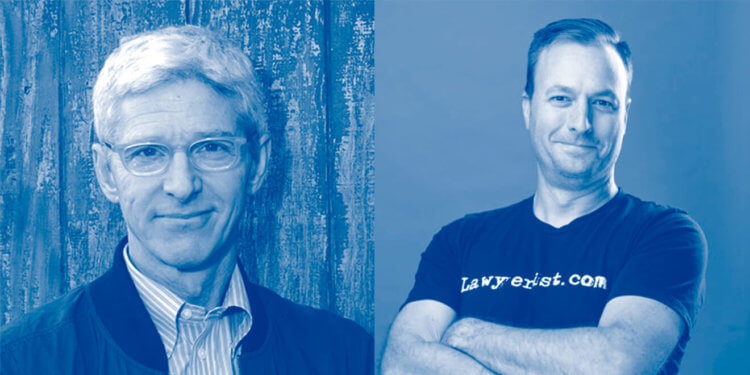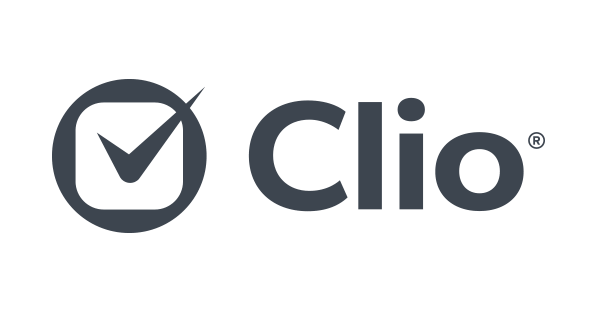

About the episode:
Could somebody look at your legal practice and determine why you do what you do? In this episode of Matters, we’re joined by John Kassel, Managing Partner of one of Vermont’s leading law firms, and Sam Glover, Founder of Lawyerist.com, to discuss what it means to be mission-driven. For modern law firms, missions are more than just words or ideas—they are “the why” behind your legal practice, your reason for doing the work that you do.
John and Sam have implemented strong mission and value statements with their colleagues, leading to growth, success, and greater employee satisfaction. In this episode, they’ll speak to the impact that being mission-oriented can have for firms, and they’ll dispense practical advice on how to align your practice with your “why.”
Our Guests:

John Kassel
John Kassel is a Founder and Managing Partner of Dunkiel Saunders, in Burlington, Vermont. In addition to his two stints at this mission-driven law firm, his more than 30-year legal career includes time in private practice as a commercial litigator; with the Government of Vermont as a prosecutor, agency general counsel, and Secretary; and as head of the Conservation Law Foundation, a regional environmental advocacy organization based in Boston. He’s had the opportunity to learn from all sides how government, business, and the charitable sector can advance the public good—and their limitations in that regard. He lives in Vermont and can’t really imagine living anywhere else.

Sam Glover
Sam Glover is the founder of Lawyerist.com, a virtual community and resource center for lawyers to come together—and to learn how to start, manage, and grow a modern law practice. With Lawyerist, Sam has developed the Small Firm Scorecard, which helps firms assess their strengths and weaknesses so they can position themselves for success.
Host bios:

Teresa Matich
Teresa Matich is the Content Strategist at Clio, where she’s responsible for educating the legal industry on market trends, best practices, and important issues impacting law firms. In her spare time, she enjoys traveling, snowboarding, and traveling to snowboard. Email her at [email protected] or tweet her at @TeresaMatich.

Andrew Booth
Andrew Booth is the technical producer for Matters, and works within the Business Operations department at Clio as the Learning Media Specialist. He is best known as the voice (and sometimes face) of Clio’s training videos. Andrew received his Broadcast Communications degree from BCIT, and has produced work for such broadcasting outlets as Global News and Roundhouse Radio. Email him at [email protected].

Derek Bolen
Derek Bolen is the Senior Manager of Customer Marketing at Clio, which means he gets paid to build relationships with the greatest customers in the world. When he isn’t working, he’s tweeting, reading, writing, podcasting, running, obsessing over fantasy football, or hanging out with his 5 year old son. Email him at [email protected], or tweet him at @hurrrdurrr.

Sam Rosenthal
Sam Rosenthal is a Content Strategist for Clio, specializing in thought leadership and creative content. A graduate of UNC-Chapel Hill’s journalism program, Sam works on literary fiction and screenwriting projects in his spare time. Email him at [email protected], or tweet him at @SamRoseWrites.
Show notes:
- Introduction to the concept of law firm missions and values—and what to expect in this episode.
- Sam talks about why having a mission is so important, and the Small Firm Scorecard that Lawyerist has developed.
- John describes Dunkiel Saunders’s firm mission, how the firm arrived at it, and how the partners and staff put the mission into action.
- Sam discusses why firms need to be specific when identifying their values and mission goals, and John shows how Dunkiel Saunders has followed this advice.
- Sam and John highlight the importance of involving firm leadership (and potentially the entire staff) in the mission development process.
- Sam talks about some of the challenges that can arise during the mission-building stage.
- Sam and John delve into the ways that a firm’s mission and values can be tested over time—and how the same mission and values can keep the firm on course.
- John illustrates the value that his firm’s mission has provided for his practice over time.
- Sam and John offer their advice for firms that want to develop or reevaluate their own missions.
- Summary and closing statements.
Transcript
Read full transcript
John Kassel: We wanted to use what we can do with the law to make the world a better place. We all realize that private practice was not going to work for us if we couldn’t do that. If we couldn’t be really intentional about our practice and design it to help clients make the world better in ways that we wanted to make the world better.
That was a passion and it still is a passion of ours.
Sam Glover: I’m not a full-time employee. I don’t want to be. I want to work 30 hours because I want to be about to be home with my kids in the afternoons and I want to do other things with my days.
I work really hard for the 30 hours a week that I have because I owe that to lawyers and I love my company and I want to do well and sometimes we absolutely put in long days, but that isn’t the norm for us, because it can’t be because that’s not our …
If that became the norm, we would start looking at, okay, well, how can we expand the organizational chart and bring in new people to make sure that we’re living up to our value? I think that’s the hardest part, is not just being aspirational about stuff like that.
Andrew Booth: I’m Andrew Booth and this is Matters. Matters is a podcast presented by Clio, the world’s leading Cloud-Based Legal Technology provider, where we look at small changes that can make a big impact on your daily life and practice.
In this episode, we’ll be talking about having a law firm mission and why it matters.
In past episodes of this season of Matters, we’ve looked at topics such as automation, client acquisition, lawyer wellness, and the client experience at law firms.
This month, we’re going big-picture and exploring law firm missions, also referred to as visions or values. These are more than just words or ideas, they are they why behind your legal practice, your reason for doing the work that you do.
Joining us are two legal experts who have implemented strong mission and value statements with their colleagues. They’ll speak to the impact that being mission-oriented can make for firms and they’ll dispense practical advice on how to align your practice with your why.
Sam Glover: I think mission, vision, and values are clarity. Those are the ways you decide how well you’re doing on everything about your life, career, work, but they’re sort of clarity and direction for the firm.
So, if you know that within five years, you want to be a $10 million revenue firm and you want to do that by … with values having to do with fair-play and environmental causes or whatever, you’re starting to draw that map of how you want to get there and how you want your firm to be aligned.
And so, you’re going to make certain choices and not other choices and I just think it really helps clarify everything about the way you go about doing what you do and it keep you focused on those goals.
Andrew Booth: That’s Sam Glover, founder of Lawyerist, which is a community for solo and small firm lawyers that tries to help lawyers build more successful practices.
One of the tools that Lawyerist is best known for is its small firm scorecard, a guided 10 to 15-minute assessment that helps firms examine their strengths and weaknesses in order to better position themselves for the future.
Lawyerist provides two versions of the small firm scorecard; one for solo firms and one for firms with 2 to 15 lawyers. “But,” Sam says, “the idea of assessing your firm’s core values and developing a mission-driven approach holds value for firms of all sizes.”
At Lawyerist, Sam uses the same approach to guide his most important decisions.
Sam Glover: I think one of the things that you’ll find is, okay, if I want to get there, then it means certain things for how much money I need to have, how many people I want to hire, the kind of strategy I need to have around hiring.
You know, Lawyerist isn’t a law firm, but our long-term goals are all about the change that we want to see in the legal profession and so, if we want to make that kind of a change in the profession, we need to expand our reach. We need to have a way to measure whether or not that change is occurring, which is where the scorecard comes from.
But we need to make a certain amount of money so that we can pay the right kind of people to work for us and all of that stuff, just all of that business strategy and business model, flows from what do you want to accomplish in the world?
Andrew Booth: One law firm that brings the concept Sam describes to life in a vivid way, is Dunkiel Saunders Elliot Raubvogel & Hand, better known as Dunkiel Saunders for short. The Burlington, Vermont-based firm’s website tells visitors straight off the bat, that this is a law firm with a mission.
John Kassel, the firm’s managing partner, wears that distinction with pride.
John Kassel: Our mission is to make a difference with our practice. That’s actually our tagline, but it also encapsulates our mission as well.
We break it down in a couple of ways that are a little more complicated to explain, but in a nutshell, we have a firm that is committed to using what we do in the law to make a difference in the world, positive differences in the world, that we want to see in the world.
Andrew Booth: Building a firm to this vision took John and his partners some time. The work they were doing before Dunkiel Saunders wasn’t as fulfilling as they wanted it to be, so they brainstorm on how to create something more meaningful.
John Kassel: We were founded, there were three of us who started, we had had at that point, you know, half a career each doing a variety of things in the private practice, in public sector, and advocacy.
We had all come to realize that we wanted to meet the needs of people in the world, not necessarily their legal needs, but actually their human needs in the world.
Andrew Booth: Because the founding partners came from an environmental law background, the firm began with an emphasis on making an impact in the energy and environmental sectors.
To this day, curbing carbon emissions, reducing pollution, safeguarding water resources, and helping the economy transition to clean energy sources are major areas of focus.
“But as time has progressed,” John says, “the firm’s priorities and sphere of influence have grown more ambitious.”
John Kassel: We have expanded, both because of our own interests and the interests of people who have joined us over time, to have a very specific focus on increasing the availability of affordable housing, increasing access to health care, particularly for those who lack it, and other, much more specific positive outcomes that we want to see in the world.
And that’s really … that’s become embedded in the way that we’ve structured the firm as we’ve grown over the last 18 years. We show up every morning and we work on those client’s matters, and they could be renewable energy developers, they could be advocacy organizations pushing for pollution reduction, they could be affordable housing developers.
So, the work we’re doing every day is causing the outcomes we want to see in the world.
Andrew Booth: John and his team are so committed to their vision, that they actually will turn away business in favour of the type of work they’ve committed to do.
From the beginning, they’ve looked to succeed financially, but above that, to make the kind of impact that matters to them most.
John Kassel: We get there by selecting the client’s really carefully, so that we know that when we work on their work, we’re going to be having those positive outcomes, and we do that.
That doesn’t happen every day, but it happens, you know, weekly, monthly, yearly when we take on new clients and we decide do we want to work for this client? Do we want to do that work that they want to do in the world? And that gets to the way that we’ve structured our intake and Matters selection process.
Andrew Booth: This is exactly the kind of mission-driven approach that Sam Glover feels is critical for firms to adopt. “But it only works,” he says, “if firms gain a deeper than surface-level understanding of what matters to them.”
Sam Glover: I think one of the risks is not defining your mission and values well enough. So, just saying you want to be the best law firm is an ever-moving target.
And so, one of the really important things is your mission should be big-picture, but it should be something that gives you clarity, and if you’re someone like me, who no matter what you’ve just accomplished, the fact that you just accomplished it meant that it wasn’t that big of a deal.
So, you really need a measurement, and so, you need to be able to look back at the end of your target timeframe, your mission is to become this by when, you need to be able to have a point at which you can measure, did you get there or not?
So, like terms like “best” or “powerful” or “change” are great aspirational-ly, but since they’re moving targets, they don’t give you something easy to measure.
So, I think when you’re thinking through your mission statement about what you want to be, it should involve words that you can eventually get down to numbers that you can measure.
Andrew Booth: At Dunkiel Saunders, John and his partners have learned to follow Sam’s advice. They’ve organized the 15-member firm into four distinct practice areas and each practice group has identified the specific measurable outcomes it wants to achieve with its mission.
John Kassel: So, with those outcomes in mind, every matter that we consider taking on, we rate according on a scale of 1 to 5, 5 being it advances those outcomes in an absolute way, 4 being well, yes, it advances them, but it’s a little questionable, 3 it’s neutral, 2 would be negative, and 1 would be quite negative.
We bring in a new matter. We do a conflict check like all lawyers do, but as part of the conflict check, we also do a mission check, and that’s when we assign a scale of … a value on a scale of 1 to 5 to that work.
And then, using Clio, we can easily sort, or reasonably easily understand and look at how many hours we spend on mission five work and how many hours we’ve spend on mission four work or mission three work. In the course of a day, a week, a year.
And that’s a really, really valuable metric for us because that’s why we show up at work every day, is to do work that makes the world a better place.
Andrew Booth: John says this practice of measuring the firm’s data, over time has provided powerful insights the practice groups can use to become even more successful. With a better sense of what they want to accomplish, they can set clearer targets and refine their business to attract the type of clients they really want to work with.
John Kassel: When we started, we knew we wanted to do this and we did it sort of, in a manner of speaking, but we were not quantifying carefully. We would say, “Well, this is mission high. This is mission low. This is mission medium.” We didn’t have an ability to actually keep track of time and aggregate the way we do with Clio and certainly, not to sort it as it relates to mission-writing.
Being more specific about it has made us focus with more detail on it and that helped us … helped … it was one of the motivations that really made us go back to the practice groups and say, “Let’s get more specific about what mission five works for you … or, mission five work means for you.”
So, if it’s just generally good environmentally or in energy-wise, you know, what does that mean? Does it really advance the specific outcomes we want to see? And that just refined our sense of how we want to spend our time, and then sort of, importantly from a marketing point-of-view, what kind of clients we need to have.
So, the clients who are going to produce the outcomes we want to see, we could identify them and in Vermont you can actually list them on, you know, one piece of paper, they’re not that … it’s a relatively small market, which really helped us hone our marketing strategy and our outreach to clients.
Andrew Booth: Both Sam and John say that meeting as a team to create an initial mission statement and periodically review and re-centre together is invaluable.
Sam Glover: I think it’s important to involve, at least leadership, but ideally, the whole company if you’re at a company where you have that sort of team feeling.
One of the issues, I think is that before you’ve done this exercise, it’s hard to make decisions based on your mission, vision, and values. And so, like, you will have people at your company who are clearly ill-fitted people.
And so, you need to be really careful, especially with values when you’re thinking about what are our values going to be and they can’t just be things that you made up that seem like nice ideas. These have to be things that you live and own and that other people get to hold you accountable for them, both your employees and external people, and they have to be things you take very seriously.
John Kassel: We meet every week as a firm, as an entire firm, all the attorneys and staff, and we regularly ask ourselves about the work that just came in last week. Is that really a five? Is that really a four? And we have some really interesting conversations about that and as you know, certainly in the energy and environment space, a lot of things are debatable. It’s not all black and white.
So, we’ve taken on some work that we’ve had robust discussions about in the firm as to whether it’s really mission-positive or whether it’s mission five or mission four, and that causes us to really question our assumptions about what we’re trying to do in the world.
That’s been really helpful in terms of refining the work we really want to have and I would say, even more importantly, in terms of embedding this in an active way in the culture of the firm, it’s very much alive. All 23 full-time people in the firm recognize that this is why we come to work every day and we keep it fresh by having that conversation, if not weekly, at least a couple of times a month.
Andrew Booth: Sam points out that this process is not always rosy. For new firms, figuring out a formula that works can take time and for long-standing firms that have operated under one type of system for years, discussions around re-focusing the firm’s mission and values, can lead to some difficult moments.
Sam Glover: If you’re just starting a firm, it’s really easy to lay down your mission and values, but in doing so, you’re sort of … call it draft, you know? Because like, you don’t even know what’s going to work for your company yet, so treat it kind of like a design-thinking exercise where this is your hypothesis that these will be the right mission and values for the company, but until you figure out if you’re even going to be a successful criminal defence lawyer or a successful environmental business lawyer, you know, they may change over time.
So, I think it’s a great idea to lay them out from the start and to try and use them in hiring in management and firing as you grow, but just, they could be sort of a draft form at that point.
Once you’re more established, backing up and doing this exercise is also really valuable and important, but I think the experience you may find yourself having, is that you’re going to lose people in the process. Because mission and values are a really firm statement of this is who we are and what we believe. This is the goal we’re trying to accomplish in the world and how we intend to do about it, and the subtext there is, and if you don’t agree with that, you don’t belong here.
Andrew Booth: Of course, Sam isn’t saying that just because you start to create a mission statement, you’ll have to start parting ways with staff. What he is saying is that there are times when not everyone agrees about what the firm’s core values should be and when this happens, it’s important to figure out a viable path forward.
Sam Glover: When a conflict arises, when you realize that your missions are going in two totally incompatible places or, you know, you’ve started mapping out what your values are and trying to cut them down to the real core five to seven values that matter.
And if your list and your partner’s list, or you’ve got some employees who clearly aren’t on the same page, I think the first thing to do is stop and cool off if things have gotten heated by that point and take a break and then come back to it, and really approach this as an exercise in trying to understand the other person as well as you can, in order to see if there’s any common ground on these things.
I mean you treat it the same way you would if you’re trying to make friends with somebody who’s political views are the opposite of your own, right? You steel man them. You try to understand their argument as best as you possibly can, and then see if you can find common ground to resolve this problem.
Because you shouldn’t just say, “Oh, your list is different from mine, I guess we’re quitting,” I mean unless you just already knew that that was right. Try to find common ground and see if you can get on the same page and align your mission, vision, and values at that point.
Andrew Booth: “The long-term benefit to this process, Sam says, “is that you’ll come out of it with partners and staff who share a similar mindset and understanding of the firm’s core purpose and direction.”
Sam Glover: And I know this because that’s been my experience too. I had some really good employees as a firm owner and I had some really good employees at Lawyerist and I had some that were frustrating.
And now that we are using our values as part of our hiring in management and firing, we have a bunch of people who regularly blow me away with the great work product that bring with the, you know, the projects that they deliver on and I didn’t have to manage hardly at all during that process. I had to help and I had to be there as a resource, but I didn’t find myself kicking and dragging people along, just to try to get the work I needed out of them.
Andrew Booth: John describes a similar process at Dunkiel Saunders, where he says mission-based discussions can be contentious, but they lead to a good place.
John Kassel: The discussions cause us to question our assumptions and that’s always a good thing. I think mostly it helps everybody understand why the work that we’ve selected to prioritize is high-priority mission work, and that’s not always self-evident.
Andrew Booth: According to Sam, the most important thing firms can do is to ensure that they follow through on their value statements, otherwise, the exercise won’t live up to its promise.
Sam Glover: I think the biggest mistake you can make is saying that you hold these values dear and then not actually doing it. Like, think of all of the firms and companies that say one of their core values is work/life balance. In many, many of those cases, that’s baloney. There are so many … it’s become a joke on job applications … or on job postings.
You see work/life balance and you just kind of chuckle at it. Finding a company that really believes in work/life balance is meaningful and so, I think that’s a good example because it’s something that law firms struggle with.
Obviously, if somebody doesn’t meet their billable targets or if somebody is expected to be full-time and they only bill part-time or they only show up part-time, you would punish them for that. What if they’re expected to work full-time and they regularly put in 60-hour weeks? You should punish them for that too, well, not punish, but there should be a consequence for that.
You should sit down and talk to them, like, “This is not our value. Our value is not for you to sacrifice and extra 20 hours a week for the firm. Our value is that you take your vacation and if you need help figuring out where to go, we’ll come up with a list for you,” you know?
And our value is that you work full-time, so what are you doing here these extra 20 hours a week? How can we re-scope your position? How can we get you an assistant? How can we hire somebody to take that work off your plate? Because that’s not how we want to business, and I think that’s the hard challenge.
Work/life balance is a good example of that because it’s one of those things that people aspire to, but don’t really take seriously because it’s hard.
Andrew Booth: For John, this is something that Dunkiel Saunders tries to keep in mind as frequently as possible.
John Kassel: We have a set of core principles that we operate the firm by, and they are to do good work, and we define good work as the kind of work we’ve just been talking. Work that will promote the positive outcomes that we’ve decided. We do good work exceptionally well with a healthy work/life balance, making reasonable compensation and providing opportunities for personal and professional growth.
And it’s those five principals, we’ve got them up on the wall, we live by them. We try to anyway, we’re not perfect by any stretch of the imagination. We struggle with work/life balance. We recognize that there are certainly moments in representing private clients when you’re not going to have a really healthy work/life balance and that can go on for months at a time if you’re involved in a very intense project.
That said, we’ve structured our employee policies and work space and our generally attitude about intensity of work to make sure that overall, people do have a healthy work/life balance.
I mean, humbly we’d like to think that we have a model that others want to replicate, but it also means that we try to be very attentive to the trade-offs that we’re making sometimes when we take-on high mission work that’s not necessarily high revenue work.
We recognize if we do that, you know, we’re all going to get a boost from doing this high-mission work, but it may mean we have to take some low-mission work that pays more money to make sure that we have reasonable compensation and the healthy work/life balance.
Andrew Booth: What Dunkiel Saunders is essentially looking for is that sweet spot where work that fits the company’s mission is also work that is of high financial value.
According to John, Clio has been instrumental in helping the firm identify which types of clients comprise this ideal segment.
John Kassel: We can’t always have that, but if we look over time at the work that falls into that special category; high revenue and high mission work, we can analyze, well, what kind of work is that? What kinds of clients are those and are there more clients like that that we can get? Because that’s like nectar, right, that’s having our cake and eating it too.
It’s doing work that makes us feel good and actually brings in sufficient revenue at the same time. If we can’t get that, then how do we get the right blend over time? This is what Clio has really helped us do, is it’s given us a data stream that we can use to manage in a much more fine-tuned way.
Andrew Booth: As Dunkiel Saunders continues to grow and progress, the firm’s mission-oriented work will remain its core focus, not just because of the impact the work makes outside the firm, but also because it gives the firm’s staff a reason to stay motivated each and every day.
John Kassel: But we do think that it is important for everybody in the firm to be personally involved with some work that is high mission, positive social good advancing. That really makes everybody feel better about coming to work. And that’s, in my mind, the most important reason to have a mission in a law firm.
The kind of mission that we have is that it helps people be happy in a law practice, whether they’re a lawyer or a supporting person, their entire careers.
And we saw, and have seen, so many lawyers be so profoundly discouraged and disillusioned with their practice, it’s endemic to our profession, that we are fundamentally trying … fundamentally, that’s why we do it, is because we want to have a place where we’re all happy to be working throughout our careers.
Andrew Booth: John has witnessed the transformation that aligning a firm with core values and visions can make, particularly, in terms of hiring and retaining talent.
John Kassel: Five or six years into the life of the firm, we realized this was going to work and we got big enough so that we were hiring lawyers in the beginnings of their career; either straight out of law school or off a clerkship or in the first couple of years of practice.
And we came to realize that they really wanted to come work for us and we were getting them … they were turning down other offers or they were leaving other firms, sort of traditional law firms, because the way that we had woven meaning into our practice was really, really valuable to them, and that was very, very gratifying.
The same is true for all staff. I want to say it was probably most obvious with the lawyers because, you know, they really understood what it was going to mean to them in their daily life. But we also professionalized, for example, our paralegal team at about the same time and starting hiring a number of paralegals to help us, and they were attracted by the mission as well.
Everybody’s attracted by the mission. That was very … it was surprising in the sense we didn’t know that this was going to be contagious, but I’d have to say, and maybe hindsight’s 20/20, we thought it would be right because everybody needs meaning in life and you spend a lot of time at work, and if you build a work structure around … if you build a business model on meaning, people will be attracted to it.
Andrew Booth: If you’re thinking about defining or re-defining your firm’s vision and values, Sam says you can find inspiration in companies that you want to emulate.
Sam Glover: I think I would go and look at a lot of other company’s missions, because the idea of a mission statement is a little hard to get your head around at first, and it shouldn’t be like, about how much money you want to make necessarily. That’s a number and that’s a goal and it’s a component, but your mission is a bigger question about what you want this company, this firm, to be for you.
And so, I would go and explore a lot of other company’s mission statements, especially companies that clearly care about their mission statement. Lots of companies just make one and throw it out there, but you want to look to companies that really appear to stick to that mission and really hold it seriously and do it.
Non-profits too are another place to look for. Lots of non-profits take that exercise seriously and have a real clear mission that drives their fundraising and their decisions. So, just explore a bit and see what’s out there and that, I think, will start getting the juices flowing in your own brain about what kind of a mission you want to have.
Andrew Booth: As for John, he says that the key is to identify what kind of specific impact your firm wants to make, how that impact can be understood in quantitative terms, and who your target client audience will be, and also, of course, how you’ll make money.
John Kassel: If you’re starting from scratch, give some serious thought to how you’re going to pay the bills and be very clear-eyed about that. You have to … this is a business and it’s a business with a particular strategy, just like any business has a strategy.
Our strategy happens to be around mission, but if you’re not careful about making sure that the model will support the strategy, all the mission in the world … the mission orientation won’t help you. You won’t survive as a business.
So, I think it’s marrying those two things and balancing them optimally for you that’s really important.
I used to work in the non-profit sector and you know, we were always a non-profit advocacy and we were always looking for more funding. We were essentially a donation-supported organization and many of the real mission zealous folks, and you’d see this in any non-profit advocacy world, you know, feel that going after the money is a little bit tawdry perhaps.
We had a board member, a very savvy guy who used to say, “Look, no money, no mission,” and it’s really true. You know, that applies, I think that mantra, no money, no mission, is really meaningful in the non-profit sector. It’s also very true, perhaps even more so, in the for-profit sector as a mission-oriented firm. You have to make money to accomplish mission.
Andrew Booth: John encourages legal professionals, especially the next generation, to keep innovating and to find even more effective ways of doing impactful work.
John Kassel: I would encourage everybody to keep thinking about new models. This was a model that really worked for us at the time. We started this firm in 2001.
Lawyers doing this in 2031 might come up with something entirely different and I think that kind of innovation, particularly as it relates to the mission imperative that the world is facing at the moment when you think about it, is really, really helpful. So, I’d encourage people to be creative about it.
Andrew Booth: Having a mission at your firm matters because it gives you a north star on which to focus, no matter what else is happening around you. In an ever-changing industry and world, being grounded in your mission gives you the competitive advantage of knowing who you are and acting on it.
As Sam and John have described, identifying your firm’s mission yields significant long-term benefits for your practice and your staff, only if you put real effort into determining what your firm’s values will be and if you commit to living those values on a daily basis.
To learn about how you can make your law firm more mission-oriented, check out the resources section of this podcast. You can also complete the small firms scorecard on Lawyerist.com and look at Dunkiel Saunders’ website to see how the firm has positioned itself to reach its target clientele.
Thanks for listening to the eighth episode of Matters. Matters is produced by Andrew Booth, Sam Rosenthal, Teresa Matich, and Derek Bolen, and by Clio, the world’s leading Cloud-Based Legal Technology provider.
Be sure to subscribe to Matters so you never miss an episode. If you’d like to learn more about Clio, please visit us at Clio.com.

